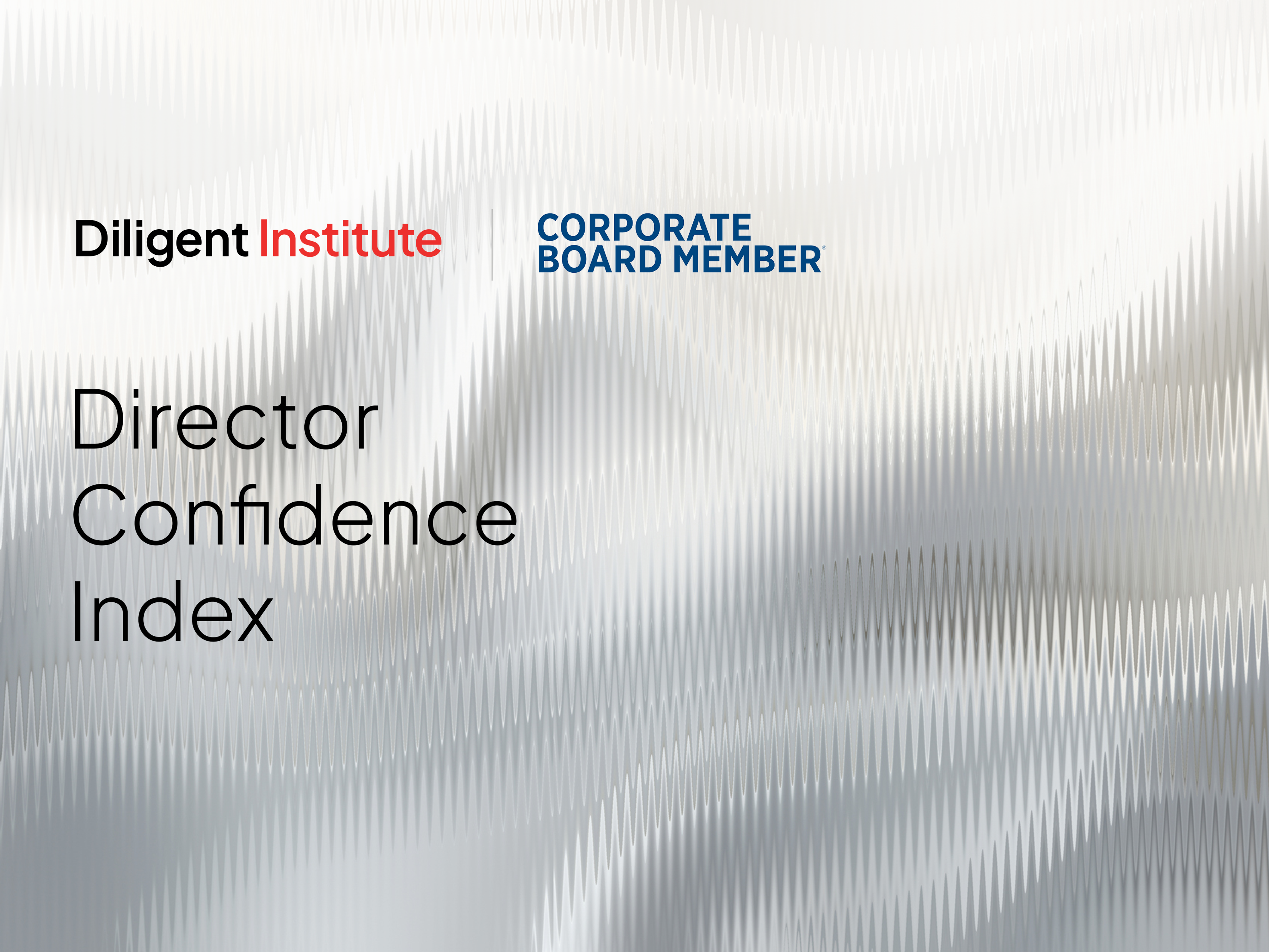GC Risk Index: Risk is on the rise

A June poll of general and corporate counsel finds business risk increasing, with concerns primarily surrounding changing regulations and continued uncertainty.
Deregulation has often been deemed a positive for business, removing barriers to growth and facilitating reporting, but current efforts by the Trump administration to eliminate more regulations than it creates may not be having the desired effect on businesses.
Diligent Institute and Corporate Board Member’s Q2 Business Risk Index, finds changes in the regulatory environment the top business risk today, according to the 71 general counsel, corporate secretaries, compliance and legal officers polled.
Two-thirds (65 percent) of those participating in the survey selected “Changes in the regulatory environment” as what they perceive to be a top risk for their company today, putting it well ahead of the second—and most talked about—item on the list: tariffs.
The reason, explained Taras Lytovchenko, the chief legal and compliance officer at Trinetix, is the growing complexity of today’s regulatory landscape, citing “new state consumer-privacy statutes, the development of new data-governance, AI, tax and trade rules” as challenges for business.
Others agreed that the current administration’s “whipsawing policies and enforcement priorities,” as one legal chief put it, are impeding corporate strategies.

In contrast, when we asked board members the same question in our Q2 Director Confidence Index, the response was overwhelmingly focused on tariffs. Changes in the regulatory environment ranked much lower on the list, in fifth place, with fewer than a quarter of directors listing it as a top risk for their company.

Still, like GCs, board members also recognize the heightened risk in the current business environment. On a 1-10 scale where 1 is Negligible and 10 is Significant, directors rated it at 6.8 while GCs gave it a 7.4—up from 5.8 in Q1.
Many say it’s not necessarily the factors listed that represent the biggest risk but rather, the uncertainty behind them. “It's hard with the shifting landscape to know when/where the next directive or action might come from. A safe and steady line of business today might be the focus of a government action tomorrow,” said a chief legal officer participating in the poll.
This uncertainty is causing legal teams to exercise renewed caution when advising the C-Suite. The poll shows they are increasingly attending leadership meetings and having more frequent communication with senior management, including the board, particularly as it relates to the changing regulatory and legal environment—and how those changes will affect their company.


AI’s role in risk management
The survey found 41 percent of legal and compliance teams are making better use of AI tools for real-time data and risk analysis, though that use remains in early stages at this time. Most common use cases include contract reviews, research and analysis as well as document drafting.
Haily Kolberg, corporate counsel at A&D Mortgage, says that’s because the technology is still far from delivering on the value promised, mainly due to the risk of errors. “How do you build any trust in AI to be accurate? I don't think it saves time when I need to verify any information it provides since its summaries are not totally accurate or detailed enough to use.”
Michael Rodgers, GC at Redstone Federal Credit Union, agrees there needs to be more evidence of how AI technology can be used in a safe and compliant manner. He calls on peers to “expound on AI use cases” for legal and compliance teams to facilitate adoption.

“Despite the fact that 41% of GCs are recommending making better use of AI tools for risk management and oversight, these findings suggest that they are still just starting to tap into the technology,” says Dottie Schindlinger, Executive Director at the Diligent Institute.“Nearly a third are not using it at all, and most are sticking to basics like contract review and legal research to boost efficiency. They’re not really using it yet to drive big innovation—it’s more about making everyday tasks faster, reflecting both the potential of AI and the careful way legal teams are easing in.”

What keeps GCs up at night?
New study reveals what keeps GCs and their boards of directors up at night—and the potential opportunities in board-GC collaboration.

Director Confidence Index: May 2025
Our Q2 polling data with Corporate Board Member finds U.S. public company board members slightly more optimistic in their 12-month forecasts than in Q1, though most continue to expect a recession in the near term.

Director Confidence Index: Navigating risk & uncertainty
As tariffs, inflation and sourcing disruptions grow, our poll finds America’s public-company boardrooms fighting to manage the moment.